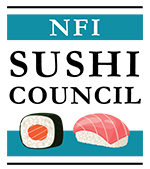Huffington Posts Simplistic Slideshow Leaves Out Key Facts on Tuna, Environment
Once again, the Huffington Post misleads readers on canned tuna and its environmental impacts. Huff Po presents uncited, out of context information in the form of a slideshow. It would appear that grabbing as many page views as possible, instead of educating readers is a priority at the Huffington Post.
The outlets latest misstep is an Earth Day compilation of animal products supposedly responsible for high CO2 emissions; canned tuna is incorrectly categorized as one of those. For starters, a discussion on how raising fish and animals affects the environment merits a substantive examination of hard scientific research, not a slideshow of endearing photos of animals with barely-legible text. And, the information included, which (again) the Huffington Post fails to cite, directly stems from a report on animal proteins by the Environmental Working Group (EWG). This activist organization is hardly a credible source; it has no scientists on its staff and continuously pushes biased reports created to promote the groups overall agenda.
Another perpetual offender is Greenpeace. Its solution to sustainable fisheries management is to ban the use of nets set on fish aggregating devices (FADs) in favor of pole-and-line fishing. But real science discredits Greenpeaces proposed panacea; pole-and-line fishing requires nearly 300 percent more fuel. Not to mention the little caveat that there is virtually no way pole-and-line fishing could deliver enough tuna to meet global demand. So, theres that.
The International Sustainability Seafood Foundation (ISSF) found that tuna fisheries are actually much less energy-intensive than many livestock-derived protein sources. As University of Washington Professor Ray Hilborn points out, If we stopped fishing, we would need to convert a lot of rainforest to agricultural production and increasing dependency on other land protein sources would increase those products emissions.
Figuring out how to ensure the sustainability of tuna stocks while considering environmental impact is definitely not as cut and dry as the Huffington Post and activists make it seem. Luckily, the tuna industry already knows this and is collaborating with scientists, conservationists and environmentalists to put in place the best methods of raising, catching and packaging tuna for everyone.


